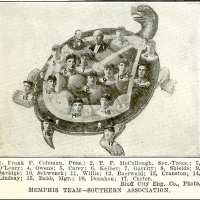Game Date: Apr 10th, 2064
Discussion Forum
Forum >> Discussions >> Team Range vs. Individual Range? 
 |
|  |
| 
| Post ID | Date & Time | Game Date | Function |
|---|---|---|---|
| #21014 | 07/12/2015 4:37:01 am | ||
|
garfscores Joined: 10/13/2014 Posts: 488 Battle Creek Sting IV.7 
| I saw the quote in the "Weaknesses" thread: "Dwindacatcher is partially correct about range in the fact that the RF range isn't looked at directly for range. However, the team range is weighted by position. RF is not going to be weighted as highly as CF or SS, but all of the OF ranges are going to have much more weight than 1B, 3B, C, and P. So generally you are going to want to play those guys with bad range at 1B, 3B, or C. Otherwise they will drag down the team range calculation. In some ways its worse, because his lower range will decrease the range for your plays at SS and CF, not just RF. He is probably no killing you given you have decent range elsewhere, but he will directly impact the range for every play on the field." Basically states that range is a team skill and that an outfielders range affects your SS's range. That is preposterous. What Steve was saying was that if you have a bunch of high range guys it will affect the number of chances the rest of your player's get. So, because your RF is 7 range doesn't mean your SS's range goes down. It actually means that his number of chances will go up due to more balls in play going for hits in right field. I just wanted to clear this up. Range is a team skill in that the higher your average team range, the more outs you will create on balls in play as a team. But your right fielder's range doesn't adversely affect your shortstop's. |
||
| #21015 | 07/12/2015 5:34:11 am | ||
|
Seca Joined: 05/05/2014 Posts: 5199 Waterloo Dinosaurs Legends 
| Aggregate range can sound strange when you first hear about it, but its not bad at a all really. Even opens some interesting strategy options. The match engine resolves games AB by AB (not pitch by pitch). The hitter's data, pitcher's data, defense data, ballpark, weather, etc., go into the black box. The black box decides if it is a hit/out/K/BB/error/etc., then decides how far it goes. In a way, where it goes is flavor added after the hit registered. (Edit: the italics is canon. The order of events in the black box is my speculation). Put another way, it is like listening to a radio broadcast and hearing: "Batter swings .. a single .. into RF" rather than: "Batter swings .. into RF .. a single" Aggregate range may cause you to view player skills differently (though personally I've decided I would view range the same even if individual). The value of a player's skill is determined by two things: frequency and size of effect. With aggregate range, the frequency is huge. A defensive player's range is used on every ball put into play during the season. Somewhere around 4400-4600 plays (higher if pitching staff is bad For comparison, a position player's hit, BC and PD is used ~600 times per season. Power and speed ~150. Smaller frequency, but larger effect sizes. A 7 range RF is not making your 17 range SS play worse. Your defense works as a collective. The RF will cost you the appropriate amount of hits. It's just that he doesn't always get the blame. If range was individual, frequency would drop significantly. Effect size would also come up dramatically. I don't think it would change results much from what is seen now. It would mean the "blame" is more accurately attributed. Updated Sunday, July 12 2015 @ 5:54:14 am PDT |
||
| #75273 | 07/04/2020 9:59:32 pm | Apr 14th, 2046 | |
|
timothy Joined: 03/18/2020 Posts: 202 West Fargo Turtles II.1 
| Forgive me if this is laughable, but I was looking up old threads related to range and came across this one. I understand the premise laid out for for aggregate (and perhaps weighted aggregate) range. I'm actually trying to figure out the extent to which my defense is affecting my pitcher performance, but I'm not sure how to juggle the numbers. The murkiness for me comes in this: Say that Team I has an aggregate range of 100 and made 1,000 putouts over a period of time, while allowing 100 singles/doubles/triples. If Team II has an aggregate range of only 80, you wouldn't say, "Well, Team II has only 80% of the range, so they would have only made 800 putouts on those same balls, and therefore would have allowed 300 singles/doubles/triples instead of 100." Right? That's not how it works. A lot of balls are caught or fielded properly regardless of range. Range affects balls hit in between fielders or beyond outfielders' grasp. So, how does one seek to approximate the number of putouts Team II would have made? |
||
| #75285 | 07/05/2020 8:51:59 am | Apr 14th, 2046 | |
|
Seca Joined: 05/05/2014 Posts: 5199 Waterloo Dinosaurs Legends 
| Wowza. You dug pretty deep to find this one. It's virtually impossible for us to tell. There are too many variables. (Since I made that post you can add manager ability in on both sides of the ball as additional variables). The ultimate statement might look something like: If ((x * player skills + y * manager skill + rng - a * pitcher skills - b * manager skill - c * ballpark factors - d * agg range - e * weather) > 0) {hit} Where all the little numbers are weight factors. The power of range isn't that it rules the equation, its that it is in the equation. Over the course of a season its effects felt. But that wasn't your question. Not meaning to pick on you, but 11 is a little low for SS. |
||
| #75287 | 07/05/2020 10:36:51 am | Apr 14th, 2046 | |
|
timothy Joined: 03/18/2020 Posts: 202 West Fargo Turtles II.1 
| Haha, I know! That was one of the conundrums with the team I inherited, though - that's a player with 197 hits and 102 RBI last year. Appreciate your answer. |
||